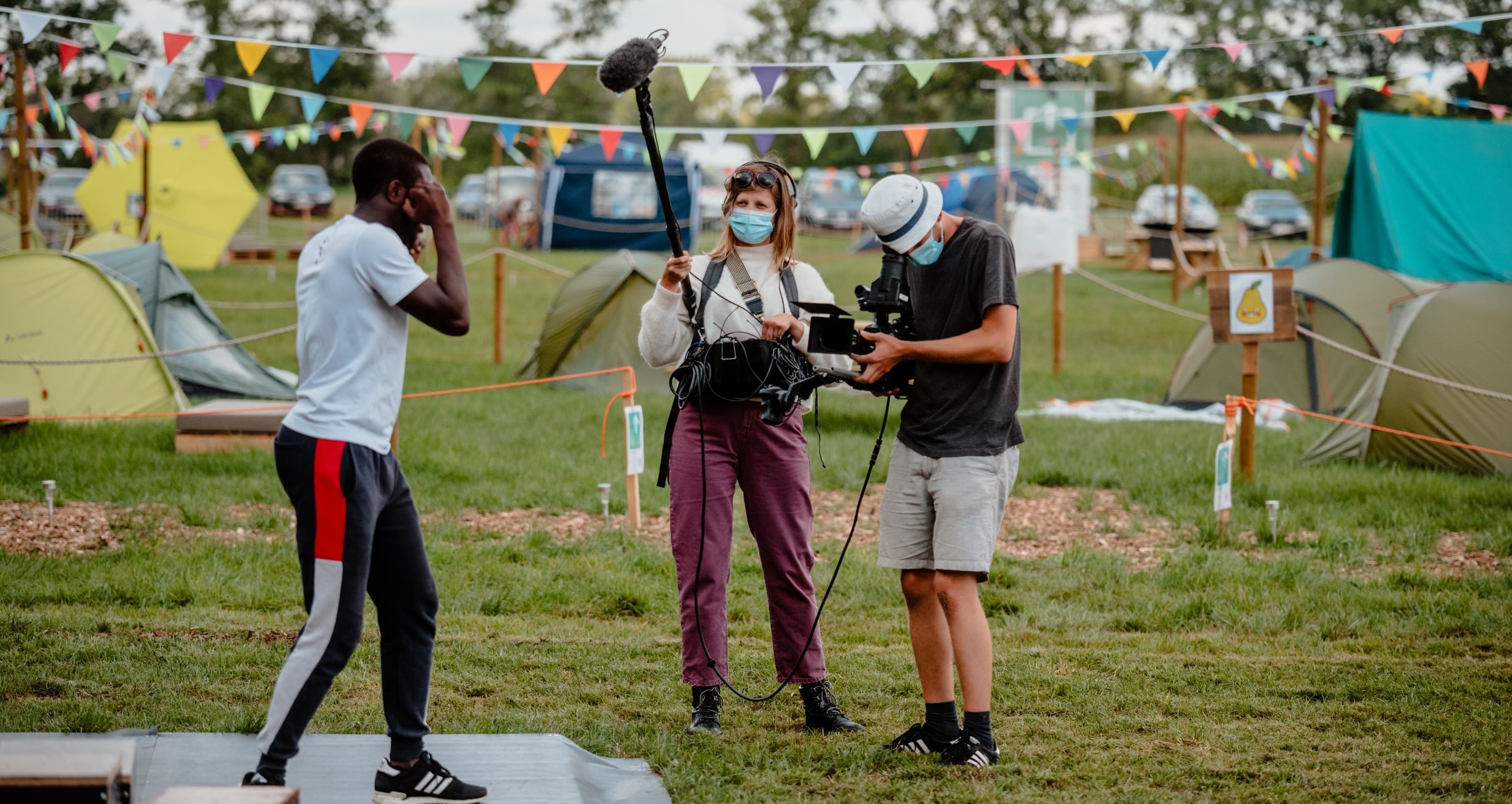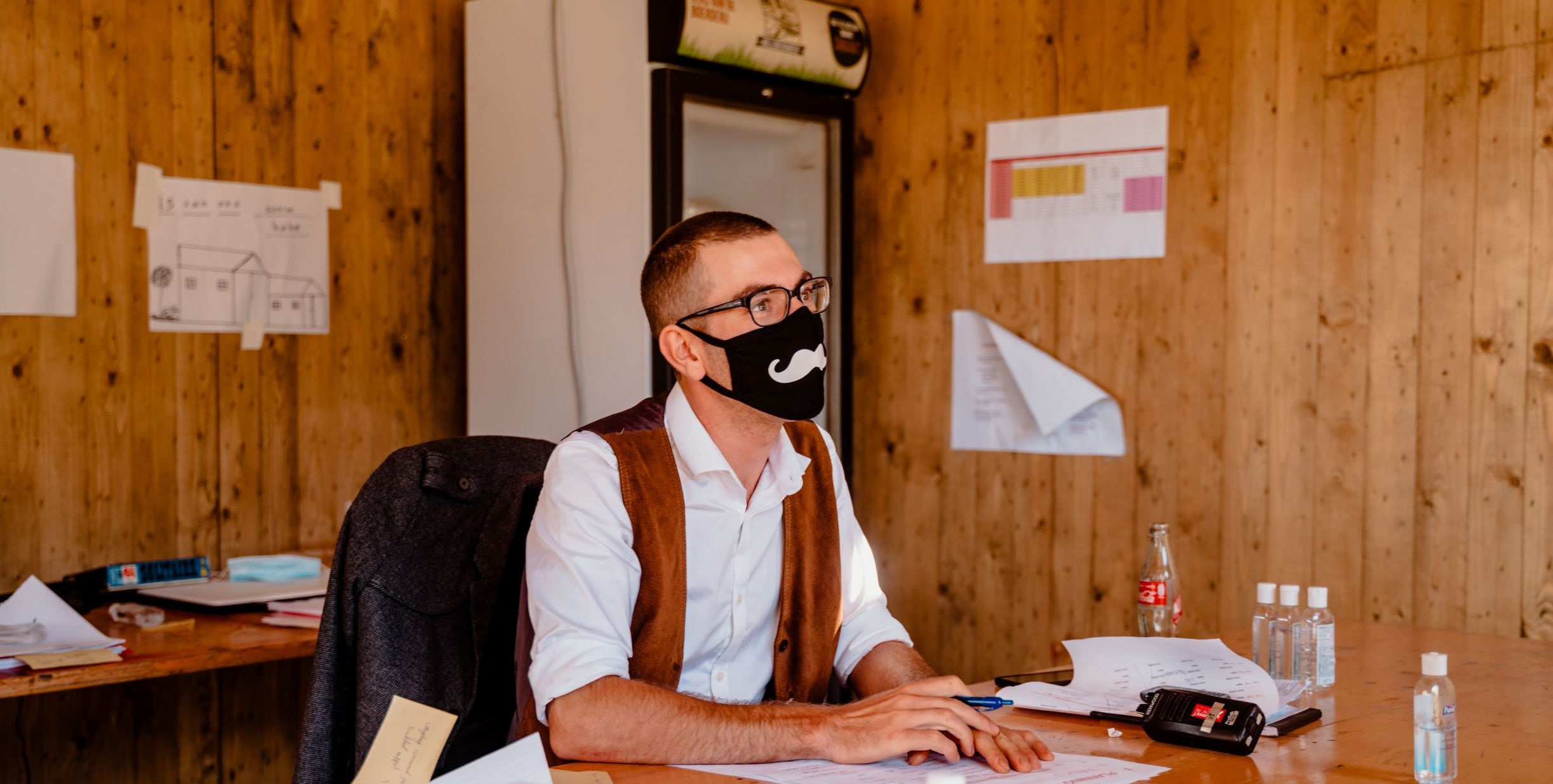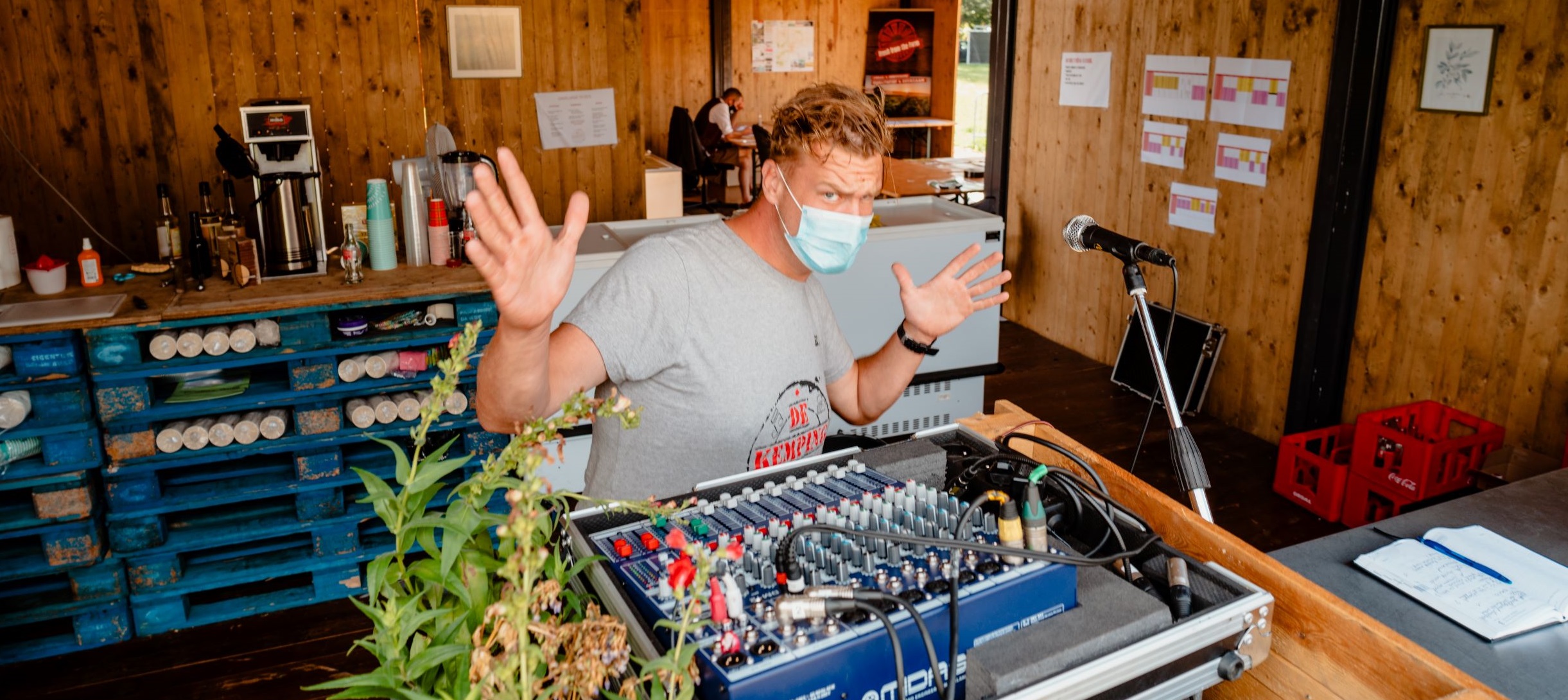Jan Hennes: starting and running a campsite with unemployed young adults... on tv!

Short Bio
I work in television, producing TV programmes at the production company De Chinezen. At De Chinezen, we make socially engaged television. Programmes like “Radio Gaga” and “Back To Rwanda” tell deep human stories. For the programme De Kemping (a contraction of Camping and the name of the Kempen region), we went a step further and set up our own non-profit organisation. This non-profit organisation aims to help long-term jobseekers to gain experience and get them back to work. The De Kemping association will continue to exist after the programme and will continue to focus on supporting young people in long-term unemployment. This made me a social entrepreneur and social worker.
My EPALE
EPALE is new to me. We found support for our project at the European Solidarity Corps as a part of Erasmus+, so De Kemping had a European dimension. Participants could also add the certificate Youthpass to their CV. While this may not have been particularly important for each individual, it confirmed the significance of the project.
My Story
De Kemping is a reality TV programme. It was set during the summer of 2020. Nine young adults who had trouble finding work step onto a meadow somewhere in the Kempen region. For the next two months, they built and ran a campsite, led by creative leader and youth coach Tijs Vanneste. For two months they defied heat waves, rainstorms and COVID-19. They cleaned the showers and toilets, ran the camping cafe, and organised bingo competitions. And they leart to cooperate with each other and take on responsibility, in order to improve their opportunities within the labour market.
The idea for De Kemping came from Tijs Vanneste, a creative jack-of-all-trades and musician. He wanted to start and run a campsite with people in long-term unemployment. Tijs taught in special education for ten years. He coaches the participants and provides them with much needed resources and work experience to be able to throw themselves into the labor market.

Work distributed in consultation
After all, there is a lot of work to be done on a campsite and a lot to learn. The young adult were given responsibility for the campsite itself and decide everything together with Tijs as their motivating force and mentor. During the project, the young people worked together and they delegated the work by mutual agreement. They took on responsibility themselves and can thus build up work experience. To make the project realistic, we set up an association for it. This was the only way to give the programme a real foundation. Through the non-profit association, we were able to provide the participants with proper guidance and also pay them a salary. We did not want to use people or employ them to work on the TV programme for free, as so often happens. We paid the main characters of the programme for 7 weeks providing them with full guidance, with the aim of finding them work. To date, almost all of them have succeeded, even before the programme was aired. We also hired someone from the crew for our production company.
More than reality TV
The idea of setting up a project for this target group came before the idea of making a TV programme about it. Our entire approach as a TV production company is unique. The whole project was about more than making a documentary, it was not voyeuristic and not scripted. We simply filmed what we saw. It is a real campsite, with real guidance. There was always a psychologist present and two more coaches available on site. In the programme you can also see what the experience of working on the campsite meant to the participants.
Solid recruitment, no 'laugh-out-loud' television
For the recruitment, we contacted about 50 organisations in the region: the employment office, CPAS, social work agencies, outreach and community workers, organisations engaged in counseling for work, youth organisations, etc. We also sought their advice on the approach.
Initially, people were skeptical about the television format and there was a general fear that it might involve making fun of the people involved.
But confidence in the model grew and when the programme was finally broadcast, we received great feedback. Of course, we had to select candidates, some of them dropped out themselves because of the fact it was on TV. The selection was not primarily based on who would make interesting television, but mainly based on the motivation of the candidates and the need to create good group dynamics. Those candidates who were not selected and their supervisors received honest feedback from us. We stayed in touch with the group of participants after the recordings, in order to help them find work and also to protect them from the outside world, especially when the programme aired on television.

Bringing out professional talents
The young adults featured in the programme had difficulty finding work or keeping it for a variety of reasons. Often, the cause was the ‘baggage’ they carried from their past, a family or addiction problem. We could not solve all of these problems. The main objective was to give them a fresh start, at least professionally. Their professional experience is often a string of small and short contracts. Typically, they have never been able to show their strengths. They entered the project with many doubts about themselves and their abilities. We offered them a place where they could show cast their talents. They found peace of mind or something tangible for themselves.
This improved their self-confidence and the conviction that they have a talent. The talents they discovered were very diverse: from a promotional talent, to talents in planning and as a team leader...
Finding strength in collaboration
Working together on the project, starting from scratch, gave the participants the drive they needed and has allowed them to find their strengths. Apart from a first aid course, they did not receive any specific training or courses. The most important lessons they have learned are: how to work in a team with others, how to take initiative and how to hold down a job. Coming to work every day was the first important goal. The mornings started with a small group discussion and the daily schedule. During the day, there were several coaching talks.

Tools for entrepreneurship
Our main concepts and tools were the concreteness of the project, its creative side, the clear time perspective, giving space and appreciation, keeping pressure off and giving the participants the chance to use their strengths. This is also a form of entrepreneurship. It is no different from someone who starts a deli, albeit these people need a bit more ‘fertiliser’. The fact that there was some entertainment involved also helped, and of course you won't always find that in your job. We cannot ensure this is the case for these participants in their future roles.
Openness and freedom as an incentive
Furthermore, the great openness and freedom was a strong stimulus. This created a different atmosphere than in a traditional work or learning environment. There were also arguments and disappointments, personal problems and bad days. But everyone found something to do in the multitude of jobs on a campsite. Taking initiative and completing tasks was a problem in the beginning. But the sense of responsibility grew. In the last two weeks it was clear that they could run the campsite completely on their own.
Did you get inspired by this story? Let us know below in the comments and get the chance to win an EPALE unique gift!
5 users per month (May-November 2021) from those commenting a 2021 Community Story will be picked at random and will receive a gift. Comments must be relevant and related to the topic to be eligible.






Valóságshow
A valóságshow módszere nekem egy kicsit meredeknek tűnik, de ránéztem a videómegosztókon, és elég profinak tűnt az epizód. Szóval jó cél érdekében történt.